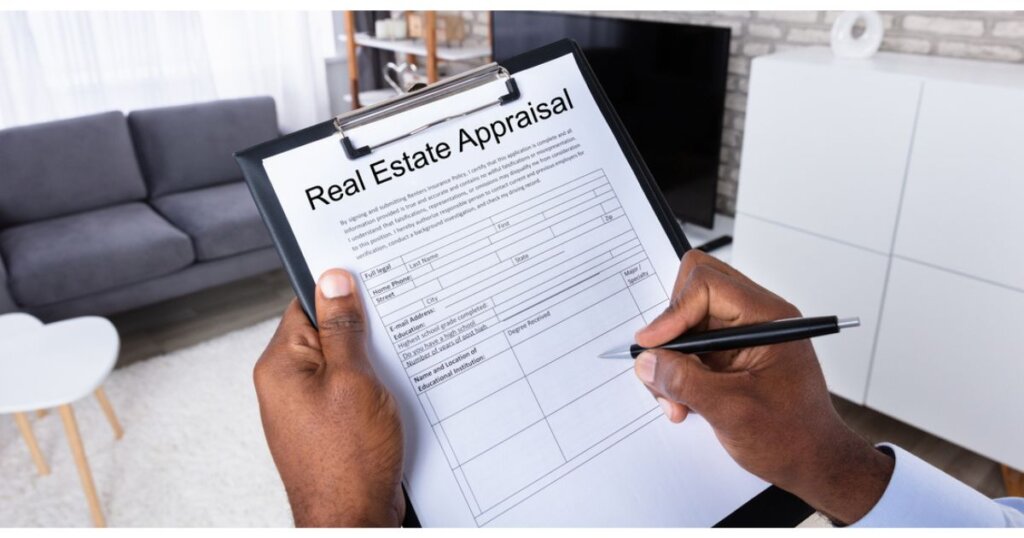
The real value of anything in this life, including the value of your home, is really whatever someone is willing and capable to pay for it.
So why do we need appraisers to tell us what our homes are worth?
The fast answer is appraisers help determine a “fair value” based upon recent sales of similar homes in your area. Appraisers help banks also determine a fair loan amount that could be issued to the potential home buyer.
There have been though a number of instances where buyers have paid more for a home than what the market or appraisal value of the home was.
This has usually been the case in situations of certain high-end home auctions or fierce competition of multiple buyers wanting the same home thus driving up the price. This is not a common situation though.
If you’re like most home sellers you are selling your home because you have to relocate, you want a larger or smaller house, you’re in a foreclosure situation, or any number of other reasons. In any case you will most likely be depending on a traditional buyer to secure a bank loan.
Doing so means your buyer’s bank is going to secure the mortgage with your home and therefore want to establish the real value of your home for themselves. They will not consider the value you have established on your own. In that situation you might be concerned about what an appraiser is going to ultimately look at to establish the final value of your house and property.
Like most people you might have depended on sites like Zillow or Trulia, to help you establish a value of your home. While that’s okay to do there is much more to consider when working out your real appraised value, not just its market value.
When working with appraisers here is a guide and checklist to help you know what to expect.
The Home Appraisal Process
If a buyer is looking to purchase a home with financing, they are required by Federal law to use a home appraiser provided by their lender to determine the objective value of a property. And while there are standard criteria that an appraiser must use, there are additional standards that may be subject to both the lender and state.
Up until 2009, appraisal management in Utah was unregulated, which meant management companies were occasionally giving appraisals far higher than the actual value of a home. These days, Utah appraisals are regulated by the State Division of Real Estate, who ensure that they comply with national standards and ethics.
Home appraisal costs can vary from company to company, but it’s been estimated that the average national cost is between $150 to $600. Some management companies can also charge an overhead maintenance fee of anywhere from 25 to 40 percent extra—even despite national regulatory standards.
The ultimate valuation of the appraisal can come from numerous sources, including:
- County and municipal records
- Historical value
- Recent sales and listings of comparable properties
- Repairs and improvements
- Property history
- Cost of renovation
- Income value—meaning its value as a potential rental property (this is only applicable to multi family homes and not single unit properties)
What Constitutes a Credible Home Appraisal?
- An accurate and precise description of the property—including square footage, structural damage (if any), interior condition and any home improvements and renovations made
- A listing of the most recent sales of comparable properties
- The effective date of the appraisal
- The scope of work conducted
- Comments that support an independent appraisal
- Any additional requirements from the lender as well as any federal or state housing commission.
All appraisal standards must comply with the regulatory requirements and protocol of the Uniform Standards of Professional Appraisal Practice.
What Does a Home Appraiser Look For?

At the bare minimum, a home appraisal will take into consideration the following:
Property Exterior
While the process of structural review is more thoroughly examined by a home inspection professional, appraisers are still trained to recognize even minor damage to the foundation, rooftop and the walls. A good rule of thumb to keep in mind is that whatever you can notice, an appraiser will notice what you overlooked; so it’s better to be upfront if there’s visible cracks or other structural damage. Sometimes they may turn out to be minor, but other times even the most minute chip or crack can turn out to be damage which can reduce the value of your home by several thousand dollars.
Also, be aware that any repairs, add-ons or construction you may have done to the home may not necessarily have a significant impact on the appraisal. While there’s no doubt that they can definitely add to the value of your home, an appraiser’s exterior review will focus as much on potential damage as it will remodeling.
Property Size
Both the size of your lot as well as the size of your home will be taken into consideration; which can present a problem for many homeowners whose add-ons (such as fences or additional construction) may infringe on previously surveyed deed tracts.
At the same time, if you’ve attempted to increase the value of your home with additional bathrooms, bedrooms or dens, you will likely find its value ultimately increasing. Home improvements generally tend to tip the value of a home in your favor, even if the current market is less than perfect.
Interior Condition
Much like the exterior condition, an appraiser is trained to look for even unnoticeable damage; and that can include pipes, wiring, HVAC systems and plumbing, as well as windows, doors, walls and fixtures. Even appliances such as a stove or refrigerator can affect an estimate.
On the other hand, you’ll probably find that new flooring, paneling, countertops and fixtures will affect your appraisal positively—especially if those new fixtures happen to be energy efficient.
Generally speaking, the two most important factors that an appraiser will take into consideration are total square footage and functionality. Any major home improvements must be code compliant; and perhaps more importantly, not have caused any undue damage to the property’s structural integrity.
Home Appraisal Do’s and Don’ts
Do speak with your appraiser beforehand
While it’s important to ensure your appraiser is fully licensed and FHA-certified, you also need to take into consideration their business history, their familiarity with your neighborhood and their ability to give an honest and independent evaluation.
Don’t try to influence their appraisal
The purpose of an appraisal is to give an objective and fair estimate of the worth of your home. To attempt to sway it in your favor is not only a violation of ethical standards; it’s illegal.
Do discuss the history of your home
Make a list of any renovation or repair you may have made—from a complete refurbishment to replacing a leaking faucet. Itemize any receipts you may have, as well as document any unfinished repairs which were never made.
Don’t be concerned about staging your home
While you should try to ensure your home is clean (even if only for courtesy’s sake), your appraiser is not interested in your interior decor as much as the overall value and integrity of the property. If you are going to stage your home it’s better to do so when selling not preparing for your appraiser visit.
Do review recent sales of comparable properties in your area
It’s good to have some points of reference to compare to the appraisal value that is established instead of being totalled left in the dark. Doing your homework ahead of time of values of other sold homes that are comparable in your area can prepare you to ask your appraiser better questions.
Don’t rely on sales listings to accurately predict your final appraisal
There really are numerous factors to be taken into account when making an accurate valuation of your home, which is what the appraiser is there to do. Although it’s good to do some research upfront on your own don’t rely on that data as the say-all-be-all data that supersedes your appraiser’s valuation, because it will not. Many times you may be pleasantly surprised to have a higher appraisal valuation established because it is done properly by someone with skills in the field of home valuations.
What To Do When You’re Dissatisfied With A Home Appraisal
You can submit a formal “reconsideration of value” letter to a buyer’s lender asking for an adjustment and listing. You can attempt to explain why you believe the appraisal valuation was incorrect, but you’ll often find that appraisals such attempts futile.
One better alternative is to bypass both lenders and appraisers altogether and sell your house “as is” to us at GaryBuysHouses. Working with us there is no need for appraisal costs. There is no need for expensive renovations or lengthy arguments; approval is frequently guaranteed and often within a matter of days.
The long and short of it is that the purpose of a home appraisal is to give you an independent and objective value of your home. It may be that you agree with it. It may be that the repairs you put off all those years have affected your home’s value drastically. But it is a final value.
But that doesn’t always mean you have to settle for it.
